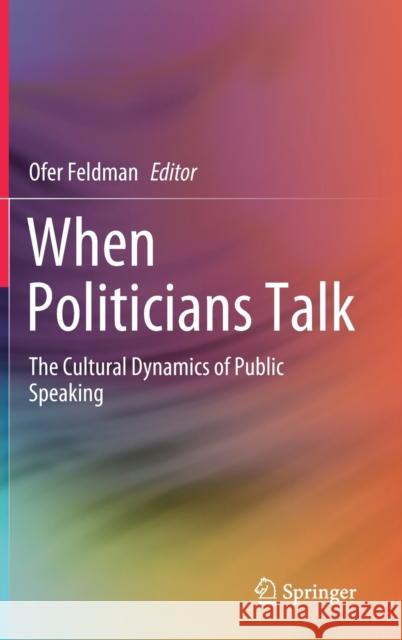When Politicians Talk: The Cultural Dynamics of Public Speaking » książka



When Politicians Talk: The Cultural Dynamics of Public Speaking
ISBN-13: 9789811635786 / Angielski / Twarda / 2021 / 266 str.
When Politicians Talk: The Cultural Dynamics of Public Speaking
ISBN-13: 9789811635786 / Angielski / Twarda / 2021 / 266 str.
(netto: 498,38 VAT: 5%)
Najniższa cena z 30 dni: 501,19
ok. 16-18 dni roboczych.
Darmowa dostawa!
"It is never easy to write or edit a book that aims, like Ofer Feldman's volume, to provide a panoramic account of phenomena that fall under the rubric of political communication. ... Ofer Feldman's volume is a fine attempt to account for the interface of culture, discourse and politics ... . the book possesses a broad appeal, both critical and theoretical, and is bound to attract attention from an interdisciplinary spectrum of early-career as well as experienced scholars." (Piotr Cap, Language and Dialogue, Vol. 12 (3), 2022)
Introduction: The Role of Culture in Shaping Political Leaders’ Rhetoric
Ofer Feldman is a professor of Political Psychology and Behavior at the Faculty of Policy Studies, Doshisha University, Kyoto, Japan. He is the author of more than 90 journal articles and book chapters, and more than 100 encyclopedia items, in the fields of political psychology/behavior, communication studies, and Japanese politics, and the sole author, co-author, sole editor, and co-editor of 16 books and monographs, including Talking Politics in Japan Today (2004), Seiji shinrigaku [Political Psychology] (in Japanese, 2006), The Psychology of Political Communicators (2019, with Sonja Zmerli), and The Rhetoric of Political Leadership (2020).
This book details the relationship between culture and the language used by public figures, including politicians, political candidates, and government officials, in the broad context of political behavior and communication. Employing a variety of perspectives, theoretical, conceptual, methodological, and analytical approaches, chapters focus specifically on the question of HOW cultural factors (such as religion, history, economy, majority/minority relations, social structure, and values) shape the content, nature, and characteristics of the rhetoric that public figures utilize in selected countries in the Americas, Europe, Asia, Oceania, and the Middle East.
The chapters enable comparison of the cultural effects on the different structures, styles, and contents of public speaking in societies from West to East. That is, of WHAT leaders say, HOW they say it (e.g., degree of openness, directness, usage of metaphors and slogans, xenophobic and racial expressions), under WHICH specific circumstances (e.g., National Days addresses, national or local assemblies’ debates, during election campaigns appeals, press conferences’ briefings, and in international meetings’ speeches), and for WHAT specific audiences (e.g., supporters and voters, media representatives, or the global community).
1997-2026 DolnySlask.com Agencja Internetowa
KrainaKsiazek.PL - Księgarnia Internetowa









